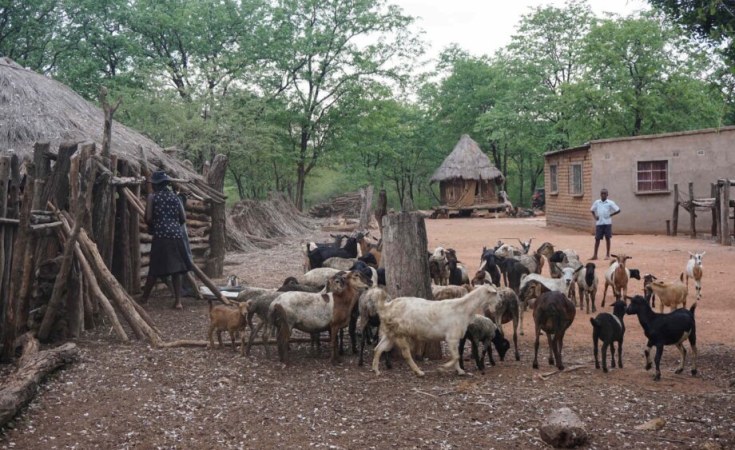Harare, Zimbabwe — Some former commercial farmers in Zimbabwe who were kicked off their land 20-plus years ago say a government offer of compensation is woefully inadequate, and only desperate people will take the offer.
Mthuli Ncube, Zimbabwe's finance minister, said the government is starting to compensate white commercial farmers whose land was taken during the regime of longtime President Robert Mugabe.
Ncube said $20 million would be shared by 94 foreign investors whose farms were seized in what Mugabe described as land reforms.
The government has promised to pay another $3.5 billion to white Zimbabwean farmers.
"Both payments will start in earnest, and this is a multiyear program, it's not for one year," Ncube said. "So every year we have an allocation so that we make payments [to] fulfill the constitutional requirements."
In the early 2000s, Black farmers displaced about 4,000 white commercial farmers with the blessing of the government, which said the takeovers were meant to correct colonial era imbalances.
In 2013, Zimbabwe enacted a constitution calling for the government to pay the displaced farmers for land improvements. Farmers and the government reached a deal four years ago setting the amount of compensation at $3.5 billion.
Zimbabwe Farmers Union Secretary-General Paul Zakariya said the government should make that promise a reality.
"Now the critical factor remains: Is the money available?" Zakariya said. "And if it is not available, what is being done to ensure that we follow through on the provision of the constitution, as well as the provision of the global compensation agreement?"
Graham Rae, who is now based in Zambia, lost his farm in Zimbabwe. He said he has no faith in Zimbabwe's promises of compensation, partly because the payment would come in the form of government bonds, which he says have little value.
"My advice to farmers who can hold on to their deeds, hold on to your title deeds," Rae said. "Your title deeds are legitimate anywhere in the world. We also feel the compensation for just improvements is very, very low."
Another displaced farmer, Ben Freeth, is also skeptical.
"We've heard it all before that government is going to pay out the commercial farmers whose farms were taken over," Freeth said. "But we realized that government is not in a position to pay out, firstly, but doesn't really have the will to pay out. ... Paying out in government bonds, if that is what they're going to do, are going to be worthless anyway, and very few people in their right minds will take such payments."
Kudzai Mutisi, an independent but pro-government commentator, said the government's decision to compensate the former commercial farmers is wrong.
"There is no justification whatsoever for compensating the former commercial farmers because for decades, they made huge amounts of money from that land," Mutisi said. "And that land, they acquired these through colonization. They never bought the land. It is something that they acquired through use of brutal force.
"But here we are: A Black government trying to compensate the abuser. It is irrational, it is bizarre and it should be stopped immediately."
The government says compensating the farmers might help improve relations with Western nations who imposed sanctions on Zimbabwe, in part, because the farmers' land was confiscated.


